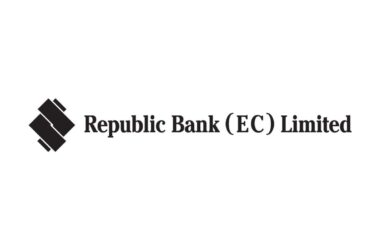
Dr Axel Kravatzky is the managing partner of TT-based Syntegra-360 Ltd, vice-chair of ISO/TC309 Governance of Organizations and president of EUROCHAMTT. He enables companies to flourish, helping them increase the sustainable value they generate through integrated governance, certified management systems, and transformational leadership.
Across the globe, including the Caribbean, the mandate for companies to produce “true and fair” accounts is not just a legal formality but a cornerstone of corporate integrity and accountability. This requirement is enshrined in the corporate laws and regulations of several nations, ensuring that financial statements provide a genuine representation of a company’s financial health to protect investors and the public interest.
The Social Contract of Corporations and Society
The concept of “true and fair” is deeply intertwined with the social contract between corporations and society. Historically, the advent of limited liability companies spurred massive investments and value creation. In return, these entities are expected to provide transparent information that accurately reflects the value they generate and the costs incurred, including their environmental and social impacts. This exchange underpins the trust and legitimacy on which corporate entities operate.
Sustainability Reporting
As global awareness of environmental and social issues has risen, so too has the scrutiny of corporate impacts on these fronts. Traditional financial reporting frameworks are being expanded to include sustainability reporting standards, which aim to provide stakeholders with a clearer picture of a company’s non-financial impacts. These emerging standards compel companies to disclose how environmental and social changes affect their operations and, conversely, how their operations impact the world around them.
Current Financial Reporting
Despite these advancements in reporting standards, a significant gap remains in how companies account for their broader impacts. As my colleagues Jeremy Nicholls, accounting and social impact expert points out, if such non-financial information is material to stakeholders, its omission from financial accounts could challenge the veracity of the “true and fair” claim. For instance, the luxury group Kering has begun to monetize its environmental impacts, reflecting these in its financial statements to provide a more holistic view of its corporate value and values.
Practical Guidance for True and Fair Accounts
The Financial Reporting Council (FRC) offers specific guidance to directors on achieving true and fair accounts. It emphasizes that compliance with accounting standards alone does not automatically equate to true and fair accounts. Directors must exercise judgment and ensure that significant information is neither obscured by immaterial data nor omitted entirely. They are encouraged to stand back and assess whether the overall accounts provide a true and fair view, integrating sustainability issues where relevant.
Nicholls provides actionable advice for directors aiming to bridge the gap in sustainability reporting.
Educate Yourself on True and Fair Requirements
Start by thoroughly reading the Financial Reporting Council’s guidance on the true and fair concept. Dive deeper by exploring research on the intersection between sustainability and financial reporting, such as the Capitals Coalition’s report on disclosing impacts on capitals in financial statements.
Review Audit and Risk Committee Minutes
Carefully go through the minutes of your Audit and Risk Committee meetings and the information they have flagged, much of which likely relates to sustainability issues. Then, engage in a thoughtful discussion with your fellow directors about whether last year’s accounts truly meet the true and fair standard.
Identify and Recognize Negative Externalities
Pinpoint one or two negative consequences or impacts of running your business that are not currently reflected in the financial statements. Acknowledge that these represent costs borne by others, and that failing to account for them means profits are being made at someone else’s expense.
Commit to Sustainability Obligations
Make a clear statement that your board’s commitment to sustainability means there is no practical ability to avoid these obligations. Decide to disclose these impacts, preferably with an accounting estimate of their value, keeping in mind the FRC’s guidance that directors should make judgments about such valuations.
Engage with Accountants and Auditors
Be prepared to have robust discussions with your accountants about these additional disclosures, reminding them that while they prepare the accounts, the legal responsibility for the accounts lies with the directors. Similarly, engage with your auditors and ask them to provide the specific guidance they are relying on to exclude this information.
Integrate Sustainability into Management Accounts and Decision-Making
While these discussions are ongoing, include estimates of these sustainability obligations in your management accounts. Ensure that board decisions consider profitability taking these obligations into account, even if they go beyond current international accounting standards.
Document Compliance with Directors’ Duties
Record all of these steps as evidence that your board is meeting legal, regulatory, and good practice guidance on promoting the success of the company while considering the consequences of decisions on stakeholders.
By following this guidance, directors can take meaningful strides towards producing accounts that provide a comprehensive, true and fair view of their company’s financial position and impacts. This not only fulfills legal obligations but also aligns with the increasing expectation that companies account for their broader environmental and social footprint.
Embrace Comprehensive Corporate Reporting
As we move forward, it is imperative for corporate boards to not only comply with existing legal standards but to embrace the spirit of these laws by integrating sustainability into their core financial reporting. This approach will not only satisfy legal requirements but will also build trust with investors, consumers, and the broader community who are increasingly making decisions based on environmental and social considerations.
The journey towards true and fair reporting is evolving. It is no longer just about numbers and compliance but about honesty, transparency, and responsibility towards the future. Let us champion a reporting culture that values sustainability as a core component of financial integrity and corporate success.











